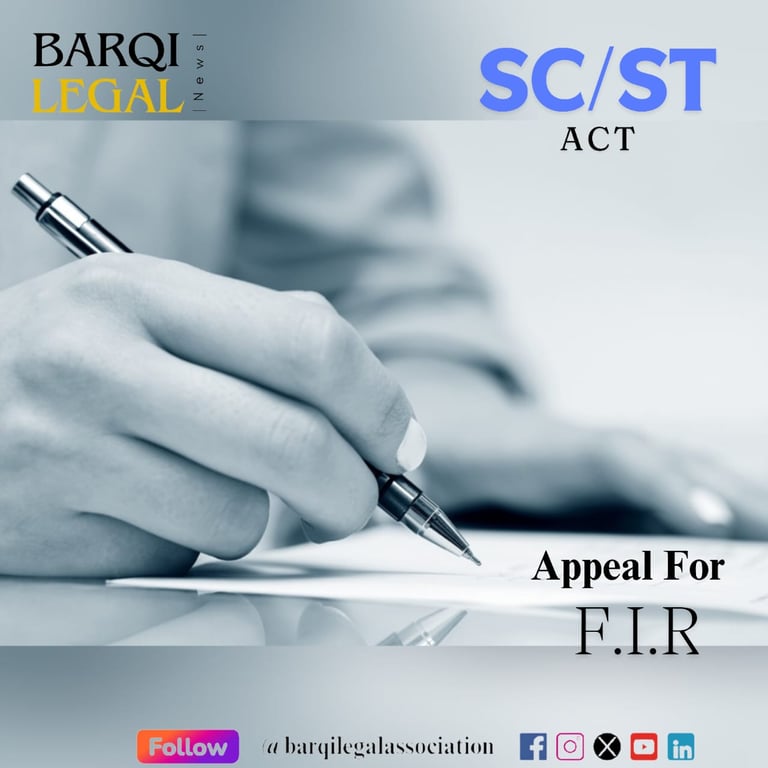Bombay High Court mandates video recording of appeals for FIR registration under SC/ST Act to ensure transparency.
The Bombay High Court has ruled that even appeals for registering an FIR under the SC/ST Act must be video recorded. This means that any appeal filed to register a First Information Report (FIR) under the Scheduled Castes and Scheduled Tribes (Prevention of Atrocities) Act, 1989, will have to be video recorded by the court.
9/8/20241 min read
The Bombay High Court has made a landmark decision, ruling that all proceedings related to registering a First Information Report (FIR) under the Scheduled Caste and Scheduled Tribe (Prevention of Atrocities) Act must be video recorded. This decision was made by Justice Sandeep Marne, who referenced a previous ruling in the case of Dr. Hema Ahuja vs State of Maharashtra. In that case, the court held that any proceedings related to the SC/ST Act must be video recorded to ensure transparency and accountability.
The current case involved an appeal filed by Vijay Sapkale, seeking to register an FIR against private individuals. Sapkale requested that the proceedings be video recorded, citing the precedent set in the Dr. Hema Ahuja case. The proposed accused argued that since an FIR had not yet been filed, the provisions of the SC/ST Act did not apply, and therefore, video recording was not necessary.
However, Justice Marne disagreed, stating that the phrase "any proceeding" in the SC/ST Act includes proceedings seeking registration of an FIR. He directed that the proceedings in the appeal be video recorded, as per Section 15-A(10) of the SC/ST Act.
This ruling ensures that all proceedings related to the SC/ST Act, including those seeking registration of an FIR, are transparent and accountable. Video recording will provide a clear record of the proceedings, preventing potential manipulation or bias. The decision aligns with the spirit of the SC/ST Act, which aims to protect marginalized communities from atrocities and ensure justice is served. By making video recording mandatory, the court has taken a significant step towards upholding the rights of these communities.


